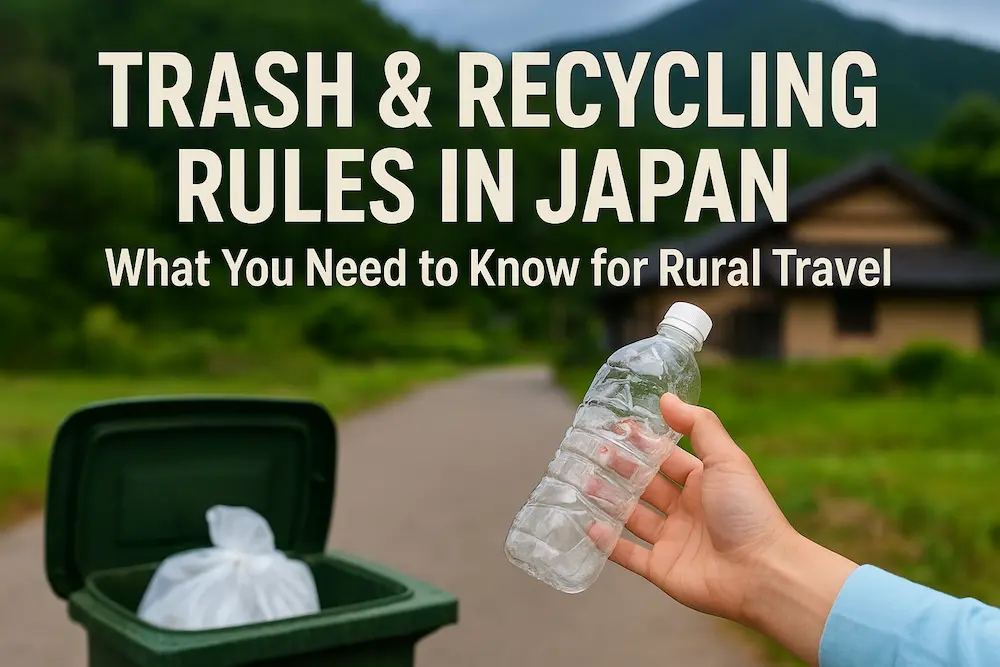
Why Trash Rules in Japan Can Be Confusing
If you are traveling in Japan, one of the first surprises is that trash bins are very hard to find. Even in big cities, you won’t see many on the streets. This is partly because local governments want to keep public spaces clean and prevent littering. Another important reason is security: after incidents in the 1990s and early 2000s, many public trash bins were removed as a precaution against terrorism and dangerous items being left behind.
On top of that, recycling rules are set by each city or town, so there is no single nationwide system. For travelers, this can be confusing, especially outside major tourist areas.
Where Can You Throw Away Trash?
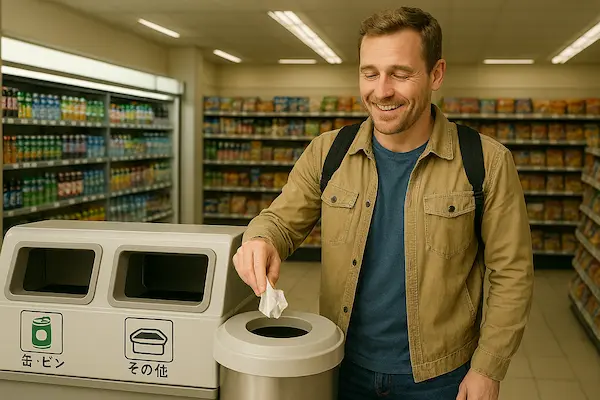
The most reliable place is a convenience store. Almost every store has bins for burnable trash, bottles, and cans. Vending machines often have small bins for PET bottles and cans. Hotels, guesthouses, and Airbnbs usually provide trash collection inside the building. At train stations or tourist spots, bins may exist, but they are often limited and sometimes removed for security reasons.
If you are renting a car, remember that gas stations usually accept small amounts of trash when you stop for fuel. This is especially helpful in rural areas where convenience stores are far apart. You can throw away drink bottles, wrappers, and other small items when you refill your tank.
In rural areas, you will notice the difference: there are almost no public trash bins, and you may need to carry your trash with you until you return to your accommodation.
How to Sort Trash in Japan
The basic categories are:
- Burnable: food waste, paper, small items.
- Non-burnable: ceramics, metal, or items that cannot burn.
- Recyclables: PET bottles (label and cap removed), cans, and glass bottles.
- Plastics & packaging: many towns separate these into their own category.
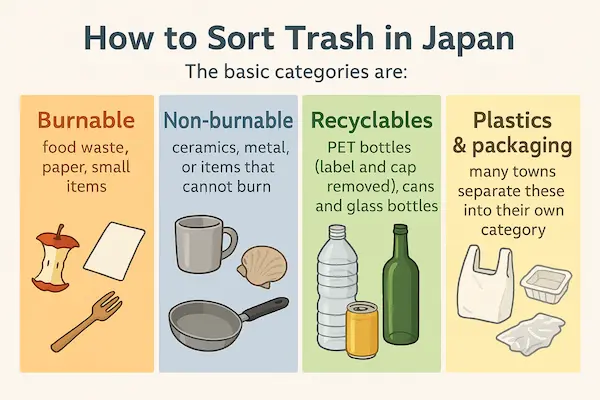
The exact system varies by region, but if you are unsure, put bottles and cans into the correct bin and keep the rest in a small bag until you can ask.
Common Mistakes Travelers Make
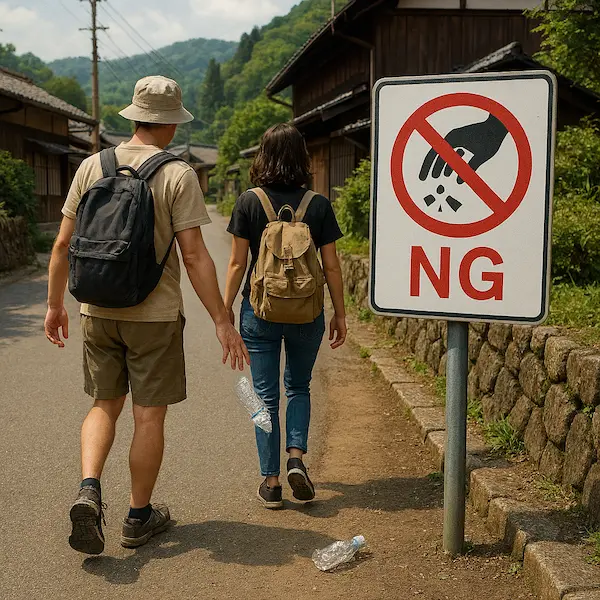
Some visitors use convenience store bins for all of their personal trash. This can cause problems for the store. Others throw everything into one bag without sorting. PET bottles with labels and caps still attached are another common mistake. In rural areas, some travelers leave trash outdoors when they cannot find a bin — this is seen as very rude and damages the local environment.
Travel Tips for Handling Trash
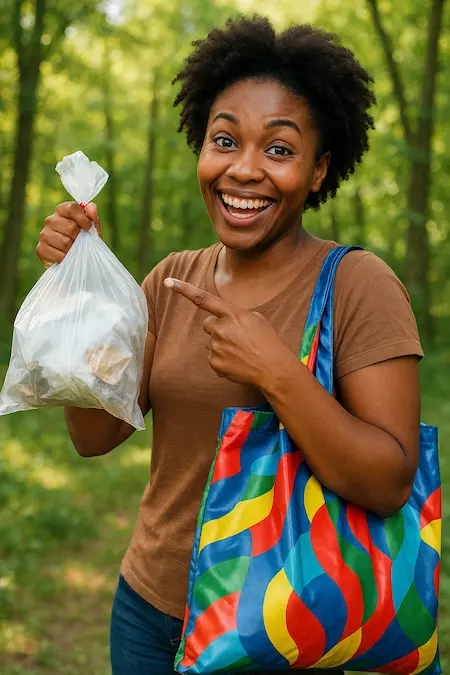
- Carry a small trash bag in your backpack. This is essential for rural trips.
- Use vending machine bins for bottles and cans.
- Ask staff if you are unsure. Convenience store clerks or hotel staff are usually happy to guide you.
- Think eco-friendly: bring a reusable water bottle and avoid unnecessary packaging when shopping. These small steps reduce the trash you need to carry.
Rural Travel Focus
When you leave the city, remember that garbage rules become stricter and facilities fewer.
Some guesthouses in villages may ask you to take your trash home.
In mountain areas or countryside towns, there might be no place to dispose of trash during the day. Planning ahead is important: buy drinks with a reusable bottle, and keep a small bag for wrappers or tissues until you return to your lodging.
Respecting these rules makes travel easier and shows care for the local community.
Final Thoughts: Respecting Local Rules
Even Japanese people sometimes find recycling rules complicated.
For travelers, the best approach is simple: carry your trash, separate bottles and cans, and ask staff when unsure.
By following these steps, you’ll avoid stress, keep Japan beautiful, and enjoy your rural adventure without worries.
